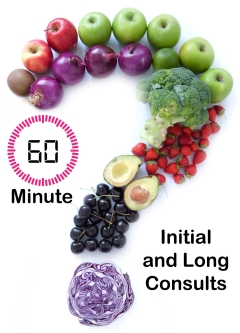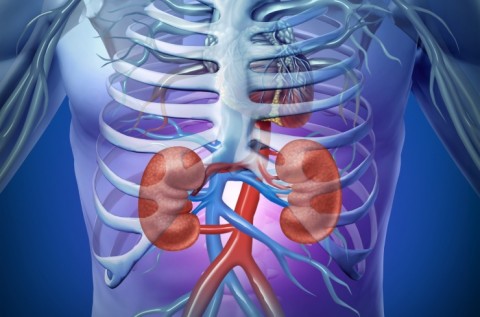DrCarney.com Blog
Decrease Kidney Failure Risk with Whole Plant Foods
The dietary and other lifestyle choices we make have an effect on almost every aspect of our health. Kidney health is no exception. The findings of the 2010 Global Burden of Disease Study revealed that Chronic Kidney Disease (CKD) is the 27th leading cause of deaths in the world. In the United States, chronic kidney disease is the 9th leading cause of deaths, responsible for about 47,000 deaths in 2013.
A diagnosis of kidney disease means a person's kidneys are damaged and cannot filter blood at optimal capacity, leading to the accumulation of wastes in the body and other health problems, such as heart disease. End stage renal disease (kidney failure) is the final stage of chronic kidney disease; dialysis or a kidney transplant is required for the patient to survive this stage of chronic kidney disease.
The main risk factors for chronic kidney disease are smoking, diabetes, obesity, high blood pressure, and abnormal kidney structure. Assuming an individual is a non-smoker, maintains his blood pressure within the healthy range, has a healthy body weight, has a normal kidney structure, and lives a lifestyle that lowers diabetes risk, is there more the person can do to prevent his/her kidneys from failing? Well actually, there is.
A team of researchers from China conducted a study to determine the role proteins from red meat play in the development of kidney failure. The researchers tracked the diets of 63,257 Chinese adults aged 47 to 74 years and estimated the relative risk of developing chronic kidney disease in each individual that participated in this study. At the end of the follow-up period of 15.5 years, the team of investigators discovered that frequent consumers of red meat had 40% higher chances of suffering from kidney failure than individuals who rarely or did not consume red meat. On the other hand, subjects who regularly ate generous portions of beans and soy foods demonstrated a significant reduction in kidney failure risk.
The results of this study show the importance of eating diets rich in whole plant foods. Beans, peas, seeds, soy, and legumes are excellent sources of plant proteins. Whole food plant based proteins are packaged with fiber, vitamins, minerals, phytochemicals, and low levels of fat. These nutrients may help to ward off several chronic diseases, including chronic kidney disease, cancer, heart disease, and diabetes. In contrast, red meat protein is packaged with saturated fat, sodium, nitrates, all of which have been implicated as a contributing factor to the development of numerous chronic diseases, including kidney failure.
The online magazine Renal and Urology News has published articles stating that Plant-Based Diets May Need to Be Reconsidered due to the benefits of plant based proteins as opposed to animal based proteins. They produced another article stating that CKD Patients May Live Longer on a Plant-Based Diet. Since it was understood that diets for people with CKD needed to be low in phosphorus and potassium and since legumes and nuts are often high in these nutrients the advice previously given was to avoid these foods along with whole grains. "However, a major difference between animal and plant proteins is that, with plant proteins, phosphorus is bound by phytate, which reduces organic phosphorus availability to less than 50%." Not all proteins are created equal.
Eating greens daily with a variety of other unprocessed, whole plant foods will supply our bodies with all the required amino acids, without increasing risk of suffering from kidney failure.
Additional Information:
(1) Kidney Disease Statistics for the United States
(2) Patient's Education: Chronic Kidney Disease (Beyond the Basics)
(3) Red Meat Intake and Risk of ESRD
(4) Plant Proteins Reduce Mortality in Chronic Kidney Disease Patients
Scroll Down Page to Leave Comments

Starch-Smart Social Networking
Join our Online Support Community at DrCarney.com/community featuring Starch-Smart Discussions, Blogs and more by signing up for a free membership to Dr. Carney's Community.
One Hour Phone Consult with Dr. Carney

Telephone Food Coaching Sessions with Linda Carney MD
Due to demand for nutritional advice, Dr. Carney's offers Starch-Smart® System "Dietary Care Extraordinaire" Food Coaching telephone sessions. The first sessions is always one hour. Subsequent sessions can be thirty minutes or one hour:
Click Here For 60 Minute Food Coaching Session
Please Note: Food Coaching sessions are not medical appointments and are not intended to replace your own physician. No tests will be ordered and no prescriptions will be provided.
When you subscribe to the blog, we will send you an e-mail when there are new updates on the site so you wouldn't miss them.




